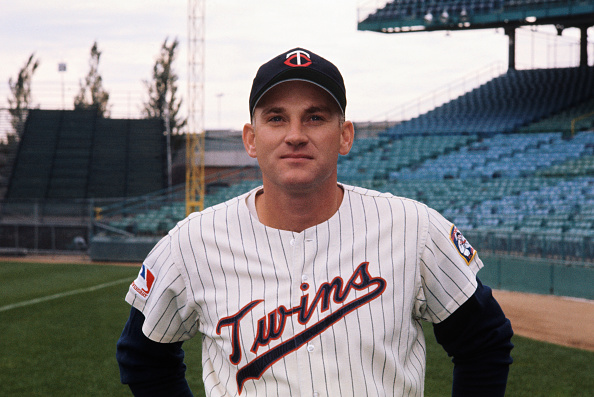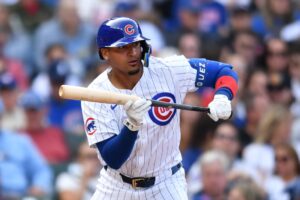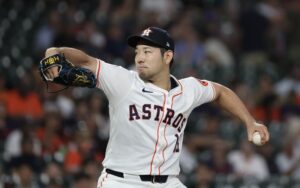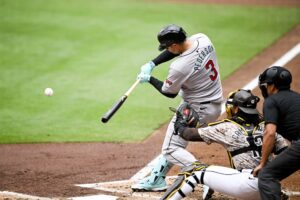Last Word on Baseball is running a tournament pitting all 30 all-time rosters against each other. Here is the Washington Senators/Minnesota Twins All-Time team. As a note, the Washington Senators baseball team was one of the American League’s eight charter franchises and relocated to Minnesota for the 1961 season.
Each roster has the eight position players, a designated hitter (for uniformity), a starting pitcher, three relievers, and four honorable mentions. For the relievers, starters can be used if a.) there are not enough elite relievers to fill out the roster or b.) the starter is simply too good to be excluded. Statistics used to determine the spots on the roster are only from each player’s time as a member of the Senators/Twins. WAR was used as a baseline but not as the be-all, end-all statistic. Without further fervor, here is the Washington Senators/Minnesota Twins All-Time Tournament Team.
Minnesota Twins All-Time Manager
Tom Kelly (1140–1244, .474) gets the nod as the manager for this team. Bucky Harris, who managed the Senators from 1924-1928 then again from 1935-1942 and a third time from 1950-1954, won more games and the 1924 World Series, but Tom Kelly won two in 1987 and 1991. Others to consider were Sam Mele, who has the highest winning percentage and the 1965 American league pennant, and Ron Gardenhire, who spent 13 seasons as Twins manager with a record of 1,068–1,039.
Minnesota Twins All-Time Position Players
Catcher
This was one of the easier choices. Joe Mauer. He is clearly the greatest catcher in franchise history. Nobody else was even close. A lifetime .306 hitter with 2123 hits, he spent his whole career as a Twins player. He was a six-time All-Star (2006, 2008–2010, 2012, 2013) and the AL MVP in 2009. Mauer also won five Silver Sluggers (2006, 2008–2010, 2013) and three AL batting crowns (2006, 2008, 2009).
His defense was exceptional, as he was a three-time Gold Glove Award winner (2008–2010).
Others to consider were Butch Wynegar, Earl Battey, and Brian Harper.
First Base
This will come as a surprise to many, but Joe Judge gets the nod at first base. A member of the 1924 Senators World Series team. He played 18 years with them and 2084 games with 2291 hits and a .299 batting average. He also led the American League in fielding five times.
Others to consider could have been Harmon Killebrew (third base), Justin Morneau, Kent Hrbek, and Mickey Vernon.
Second Base
This was another easy one, as Rod Carew gets the vote. He played that position on a regular basis from 1967 to 1975 and was an All Star every year. Carew was the 1967 American league Rookie of the Year. He stole home seven times in 1969, hit for the cycle in 1970, and had 29 bunt hits in 1974. The Hall of Famer had a total of 87 bunt hits as a member of the Twins.
Others to consider were Buddy Myer, Bucky Harris, and Chuck Knoblauch.
Shortstop
This was a challenging position. There were many players from the Senators to look at but the nod goes to Joe Cronin. He had the best numbers of any shortstop in the Senators/Twins franchise history. In seven years with the Senators he had a .304 batting average, 1090 hits, and 577 runs. He was an All Star twice and was the MVP runner-up in 1933. Cronin is rated in the top 10 of shortstops on most of the lists.
Other Senators players considered were Cecil Travis, Roger Peckinpaugh, and George McBride. As for Twins players, Roy Smalley had a nice seven years as a Twins player and Zoilo Versalles won the 1965 AL MVP.
Third Base
Hall of Famer Harmon Killebrew could have easily been the first baseman if it was a Twins-only team. However, Killebrew played 791 games at third and was an All Star at there on two occasions. Killebrew came up as second baseman and even played three full seasons in left field. His power speaks for itself, as he is still considered one of the greatest home run hitters to ever play the game. With quick hands and exceptional upper body strength, he was known for both the frequency and distance of his home runs.
Killebrew hit 475 of his 573 career home runs in a Twins uniform and made a seamless transition from third base to left field and then on to first base. In addition to hitting over 40 or more home runs 8x in a season, he was respected by everyone in baseball. The writers voted him in the top-five of MVP voting six times, including winning the award in 1969.
Eddie Yost and Gary Gaetti were others to look at.
Left Field
The toughest decision on this list, as Harmon Killebrew could have been put here as well but with so many great Senators/Twins players the choice is Goose Goslin (1921-1930, 1933). Even though he is in the Hall of Fame, he is one of the most underrated players of all time. He is the only person to appear in every World Series game the Washington Senators ever played.
Even Hall of Famer Heinie Manush could have been put there with a .328 average and 491 RBI over five seasons but Goslin is the choice because he helped the team win three AL Pennants.
Center Field
Kirby Puckett spent all 12 years of his career with the Twins. He was selected to 10 All-Star teams, won six Gold Glove Awards along with six Silver Slugger Awards. He won a Batting Title in 1989. His 2304 hits are the most in Twins history and second in Senators/Twins history behind Hall of Famer Sam Rice with 2889. Puckett’s career was cut short when he lost vision in his right eye in March of 1995 due to glaucoma. The Twins retired Puckett’s number 34 and in 2001 and he was elected to the Baseball Hall of Fame in his first year of eligibility.
Other than Harmon Killebrew, many consider Puckett to be the greatest Twins player in their history.
Right Field
Tony Oliva, who spent his entire career 15 years as a Twins player. Bad knees prevented him from achieving much more. As a rookie in 1964, he hit 32 home runs and 94 RBI, ran away with the Rookie of the Year Award, and finished fourth in MVP voting. He won the batting title in 1964 and followed it up again in 1965. Oliva won a third one in 1971. He had a strong throwing arm and he recorded 10 or more outfield assists in a season three times. When his career was all said and done, he finished with eight All-Star selections, three batting titles, and a Gold Glove. He finished up with a .304 lifetime batting average, and the Golden Era Committee voted him into the Hall of Fame in 2021.
Designated Hitter
This was another difficult choice. There were several to consider. The choice is Sam Rice, a Hall of Famer who was also a pitcher before becoming a full-time outfielder. Rice spent 19 years as a Senator. He had 479 doubles, 183 triples and 346 steals in his long career. Rice is the franchise leader in hits, runs, doubles, and triples, and had a .323 lifetime batting average as a Senator.
He led the AL in stolen bases leader in 1920 and played for their World Series championship team of 1924. In postseason play, Rice produced 19 hits and a .302 batting average.
Bob Allison was also considered. He came up as right fielder moved to left when Tony Oliva emerged as a dominant player. Allison hit at least 20 home runs in seven of the Twins’ first eight seasons between 1961 and 1968 and during that same time period, he failed to play 130 games only once.
We also considered Torii Hunter, Justin Morneau, Jason Kubel, Heinie Manush, Roy Sievers, Eddie Yost, Ossie Bluege, Shane Mack, and Byron Buxton.
Minnesota Twins All-Time Pitching Staff
This was easy, as the ace of the Washington Senators/Minnesota Twins All-Time Tournament Team is Hall of Famer Walter Johnson. He played his entire 21-year baseball career for the Washington Senators (1907–1927). The Big Train was one of the first five players elected to the National Baseball Hall of Fame. Some of his statistics are AL MVP (1913, 1924), three-time Triple Crown pitcher, five-time AL ERA leader, and six-time AL wins leader. He led the league in strikeouts 12 times and has the MLB record of 110 career shutouts. His 417 wins are second all-time to Cy Young’s 511.
Bert Blyleven
Bert Blyleven played nearly half of his Hall of Fame career elsewhere but still rates as the best pitcher in Twins history. He threw 325 innings with a 2.52 ERA in 1973 for the team’s best single-season WAR among Twins’ pitchers. Blyleven also holds the fourth, ninth, and 15th spots on that list. He is the Twins’ leader in complete games, shutouts, and strikeouts. Blyleven won 149 games as a Twin and was a member of the 1987 World Series championship team.
Brad Radke
This name may surprise many, but Radke was a widely respected and admired player around the league. He was the essence of the staff ace. In fact, he averaged almost 6 2/3 innings per appearance over his entire career.
He is second only to Blyleven in Twins WAR, and when adding in the Senators portion, he is still in the top five in WAR by a pitcher. His career win-loss total was 148–139.
Johan Santana
Santana is the only pitcher in Twins history with multiple Cy Young awards, winning the honor in 2004 and 2006. He is the all-time Twins’ leader in winning percentage. His four full-time years in the rotation he was 70–32 with a 2.89 ERA, 0.990 WHIP, and 983 strikeouts against in 912 1/3 innings in that stretch.
Jim Kaat would also be here if it had been a five-man staff. He won 189 games as a Twins player with a 3.30 ERA and was a 12-time Gold Glove winner. Except for 1961, Kaat won double-digit games for the Twins every season he was with them.
Final Relief Spot
This was tougher than one might think, but Joe Nathan is the closer. Yes, his playoff experience is rough but when it came to finishing games, he was the best in franchise history.
He blew only 28 saves in 288 attempts (90 percent) as the Twins closer and saved over 40 games three times in seven seasons with the Twins.
Honorable Mention Pitchers
Rick Aguilera, Eddie Guardado, Jack Morris, Frank Viola, Jeff Reardon, Al Worthington, Ron Perranoski, Jim Perry, Mudcat Grant, Camilo Pascual, Firpo Marberry, and Glen Perkins
Batting Order for Washington Senators/Minnesota Twins All-Time Tournament Team
| 1 | Rod Carew (2B) |
| 2 | Joe Mauer (C) |
| 3 | Tony Oliva (RF) |
| 4 | Harmon Killebrew (3B) |
| 5 | Kirby Puckett (CF) |
| 6 | Sam Rice (DH) |
| 7 | Joe Judge (1B) |
| 8 | Joe Cronin (SS) |
| 9 | Goose Goslin (LF) |
Looking Ahead
Stay tuned for coverage of the all-time tournament, including matchups and the results.
Main Photo:
Players mentioned:
Tom Kelly, Bucky Harris, Sam Mele, Ron Gardenhire, Joe Mauer, Butch Wynegar, Earl Battey, Brian Harper, Joe Judge, Harmon Killebrew, Justin Morneau, Kent Hrbek, Mickey Vernon, Rod Carew, Buddy Myer, Chuck Knoblauch, Joe Cronin, Cecil Travis, Roger Peckinpaugh, George McBride, Roy Smalley, Zoilo Versalles, Eddie Yost, Gary Gaetti, Goose Goslin, Heinie Manush, Kirby Puckett, Sam Rice, Tony Oliva, Bob Allison, Torii Hunter, Jason Kubel, Roy Sievers, Ossie Bluege, Shane Mack, Byron Buxton, Walter Johnson, Bert Blyleven, Brad Radke, Johan Santana, Jim Kaat, Joe Nathan, Rick Aguilera, Eddie Guardado, Jack Morris, Frank Viola, Jeff Reardon, Al Worthington, Ron Perranoski, Jim Perry, Mudcat Grant, Camilo Pascual, Firpo Marberry, Glen Perkins.






